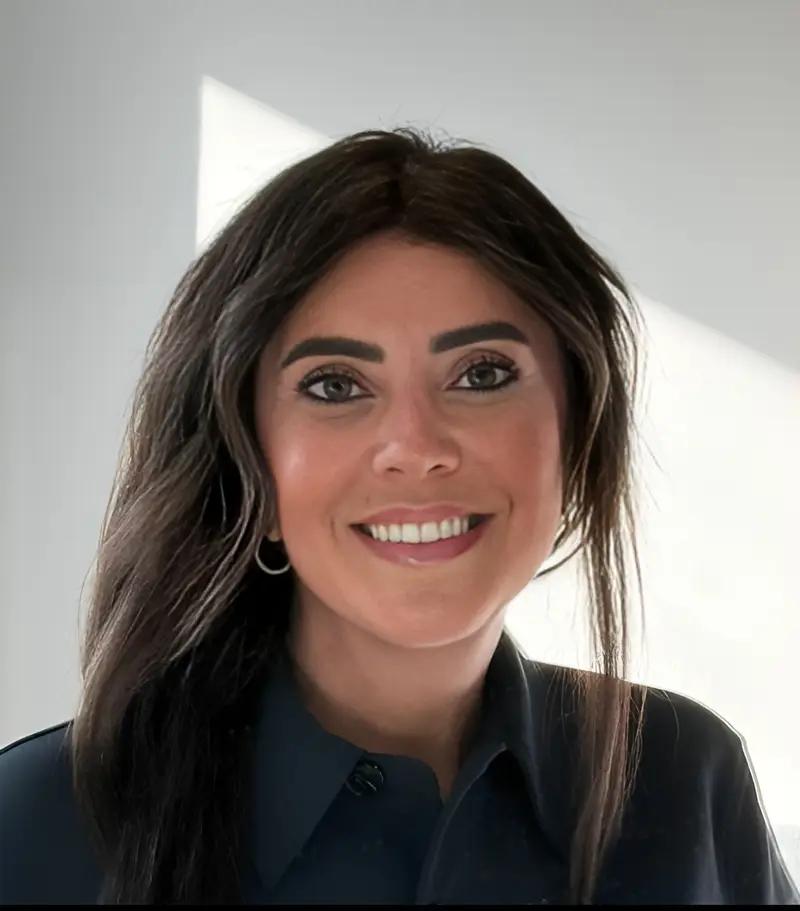Melike Serengil Özçelik is one of a new generation of proactive functional nutrition experts who not only simplify complex scientific data for everyday life but also lead a quiet food literacy movement stretching from grocery store shelves to university campuses. Özçelik began her career in psychology and wellbeing, later combining this foundation with functional nutrition and public health to develop a comprehensive expertise that addresses human health through the integration of mind, body, and lifestyle. She is currently completing her Master’s degree in Public Health with a focus on Functional Nutrition in the United States. Özçelik stands out for her efforts to promote label reading as a public health reflex. Through audio guides, social media content, seminars, and academic publications, she drives behavioral change at the community level while also developing data-driven policy proposals. In addition to her practical initiatives, she has authored multiple peer-reviewed articles and research studies published across various scientific platforms, further establishing her impact in the field. In doing so, she is recognized as one of the rare individuals who bridge the gap between being a “scientist reaching the public” and a “practitioner with a policy vision.”
Chronic Diseases: The Silent and Insidious Epidemic
Perhaps the most insidious epidemic of our time is chronic disease. Cardiovascular diseases, diabetes, obesity, hypertension, and many others strain not only individuals’ health but also government budgets. These diseases are no longer just medical issues but have become a matter of economic sustainability. In fact, approximately 90% of the U.S.’s annual healthcare spending—estimated at $4.5 trillion—is directed toward managing chronic diseases and related conditions (cdc.gov).
“The most effective weapon against this epidemic is preventive health strategies,” she says, adding that the first step is for individuals to get to know their own bodies. “Every person has a unique genetic structure, lifestyle, and set of needs. If we understand our own bodies, we can better recognize our needs and risks,” she explains. Indeed, preventing chronic illness begins with personal awareness of one’s risks and requirements. With this message, Özçelik shifts the conversation from a one-size-fits-all model of health to the importance of personalized preventive strategies.
Label Reading: A Public Awareness Mission
According to Özçelik, one of the simplest yet most powerful tools in preventive health is helping consumers develop “label literacy”—the ability to read and understand nutrition labels on food products. In this mission, she not only serves as a scientist but also acts as a public health advocate. Özçelik actively uses social media and has created a series of audio guides titled “How to Read Food & Supplement Labels” (instagram.com), which listeners can tune into even during grocery shopping. Recently released, these audio guides offer practical tips for interpreting the information found on product packages—ideal for those with busy schedules.
Additionally, Özçelik aims to design accessible training programs and workshops that explain complex nutrition science in plain language, with the goal of reaching a wide audience. For example, she plans to use relatable methods such as illustrating sugar content through sugar cube equivalents or describing portion sizes using familiar kitchen measurements—helping people better grasp nutritional data.
Today, Özçelik continues to promote label literacy through voluntary online projects and university seminars. One of her most attention-grabbing initiatives is her symbolic yet effective magnifier campaign, launched to turn grocery shopping into a mindful practice. She never goes to the store without her magnifier and uses it to read labels more clearly. She even enthusiastically shares how she gives away magnifiers to those around her:
“You’d be amazed how much difference a small magnifier can make. I’ve even gifted magnifiers to my professors and classmates, and I always encourage them to carry their magnifiers when they go shopping—after all, we are public health professionals, and we need to lead by example. It’s a small gesture, but it creates a ripple effect—first people smile, then they get curious, and before long, they’re actually reading the labels. Honestly, don’t be surprised if you spot me handing out magnifiers at the entrance of a grocery store one day,” she says with a laugh. “I truly recommend giving it a try!”
With this simple yet impactful approach, Özçelik doesn’t just convey information—she inspires behavioral change. Being not only an integrative and functional nutrition expert but also a psychologist gives her a uniquely proactive and insightful perspective. Her deep understanding of human behavior, decision-making mechanisms, and perception patterns allows her to position label literacy not merely as an educational activity, but as a social awareness and transformation movement.
One of Özçelik’s core messages is this: Labels are not advertisements—they are public health messages. Nutrition facts panels and ingredient lists, she says, contain “big truths in small print.” “No matter how appealing the front of the package may be, you need to know what’s on the back,” she warns. A product marketed with large-font slogans like “100% natural” or “whole grain” might still contain high levels of sugar or sodium—written in tiny letters only a conscious eye can catch. According to Özçelik, this kind of literacy must become a routine habit across society. As consumers become regular label readers, the food industry will be forced to respond with healthier offerings. In her words, “By reading labels, we can influence not only our own health but also the direction of the market.”
In addition to her public outreach, Özçelik’s scientific work plays a vital role in her mission. Her 2023 publication titled “Empowering Healthy Choices: Redefining ‘Healthy’ in Food Labeling to Prevent Nutrition-Related Diseases” (kuey.net) directly aligns with the FDA’s new “healthy” labeling criteria introduced around the same time. In this academic article, she critically examines the FDA’s proposed redefinition of “healthy,” highlighting the limitations of existing standards and analyzing the potential public health impacts of the new criteria (kuey.net). Özçelik argues—backed by scientific data—that it is not enough for a product to include added fiber or vitamins; if it also contains high levels of sugar or sodium, it should not be permitted to claim it is “healthy.”
In fact, the FDA’s updated definition of “healthy,” introduced after 2022, adopts this very approach. Under the new rule, a product must include a minimum amount from core food groups and must not exceed specific limits for saturated fat, sodium, and added sugar in order to use the “healthy” label (fda.gov). For instance, a cereal must contain sufficient whole grains to offer nutritional value while staying below set thresholds for sodium and sugar. A product with excessive added sugars, no matter its vitamin content, can no longer be marketed as “healthy.” This marks an important step in allowing consumers to trust the claims on packaging.
In recent years, the FDA has also introduced other reforms to eliminate misleading labeling. Nutrition labels now include clearer information on portion sizes and added sugars. New-generation labels display portion sizes and servings per package in larger print, helping consumers understand how much they’re actually eating (fda.gov). Labels must also specify, in both grams and % Daily Value, how much sugar was added separately from what is naturally present (fda.gov). That Özçelik’s academic recommendations overlap with the FDA’s actual reforms proves how timely and policy-influential her work is. Indeed, FDA officials emphasize that these changes will empower consumers while encouraging producers to improve their products’ nutritional quality (fda.gov). Özçelik’s vision matches this perfectly: to transform labels into tools for public health, to facilitate informed choices, and to spark a positive shift in the food industry.
From Academia to the Streets: Bridging Science and Society
Melike Serengil Özçelik has built a dual-purpose bridge throughout her career. On one side, she produces scientific data that illuminates health policy through publications and research; on the other, she translates that knowledge into a language the public can understand. “One of the most important challenges is turning findings I uncover in my scientific work into practical, everyday guidance,” she says, noting her effort to bridge the gap between academia and the real world. This versatile approach ensures her message reaches both policymakers and everyday individuals.
According to Özçelik, the true value of an academic paper is realized when it influences the choices of everyday people—such as a mother at the farmers’ market or a young professional rushing through the grocery store. “If a complex scientific finding helps someone make a healthier choice in daily life, that’s when we’ve really achieved our goal,” she explains. Her mission is to carry science from the lab bench to the kitchen table—without sacrificing scientific integrity and while ensuring her language remains relatable and grounded.
Melike Serengil Özçelik reminds us that fighting chronic diseases is ultimately a team effort. The government, producers, and individuals all have responsibilities. “Yes, government and industry must do their part—but most importantly, we must take ownership of our own bodies,” she says. “Reading labels, asking questions, and making conscious choices are among the simplest but most effective steps we can take for our health.” Her message is a motivating call to action: Increasing health literacy and taking ownership of our bodies are crucial if we are to stop a silent epidemic.
“Americans deserve better,” Özçelik says. “We are a leading nation in science and innovation—yet the standard American diet is literally fueling preventable disease.”
“Read the label. Change the habit. Your body is your home—know what you let in.”
“This work is carried forward with a deep sense of purpose, guided by the belief that small, conscious actions can ignite lasting change.”
As she often says—her personal motto: EAT CLEAN. ENJOY LIFE. STAY SAFE.
Melike Serengil Özçelik
Integrative Health Practitioner
Functional Nutrition & Public Health Advocate







